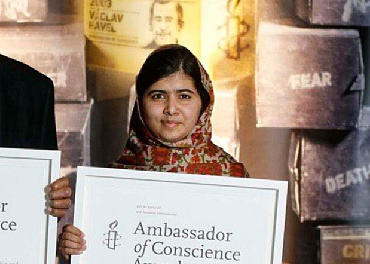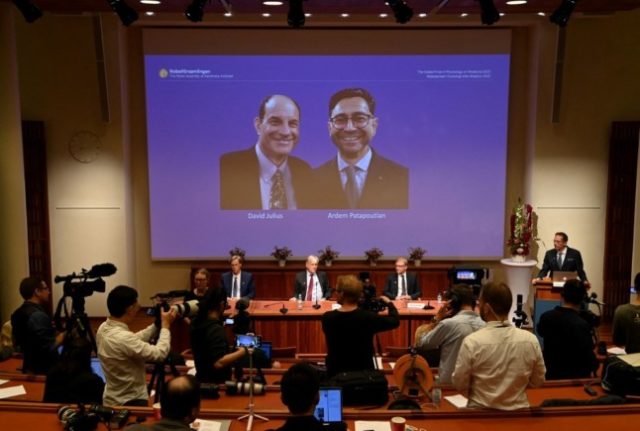NOBEL
Malala world’s favourite for Nobel Peace Prize
Teenage Pakistani education activist Malala Yousafzai and a Congolese doctor dedicated to helping rape victims are the two most-hyped figures among pundits ahead of Friday's Nobel Peace Prize announcement.
Published: 10 October 2013 09:52 CEST

Malala Yousafzai - Carbon Fibre Media
The peace prize is the high point of the annual Nobel season and sparks frenzied speculation, no matter how frequently off the mark.
But the guessing game is all that commentators have, since the list of nominees is kept secret for 50 years. All that is known is that 259 individuals and organisations were nominated this year, a new record.
In the run-up to the announcement in Oslo on Friday at 11:00 am (0900 GMT), some Nobel experts have suggested the honour will go to Malala, the teenage champion of girls' education who defied the Taliban extremists who shot her in the head by surviving and continuing her campaign on the global stage.
Giving the prize to Malala would "carry some very, very important messages," said the head of the Peace Research Institute of Oslo, Kristian Berg Harpviken, including "the role of education for peace, for democracy, for human rights, and not least for education for girls and women."
But at just 16, she would be the youngest Nobel laureate by a long stretch, and her tender age could work against her, according to some experts.
"It could be a burden. Imposing that on a child might not be ethical," said Tilman Brueck, the head of Stockholm peace research institute SIPRI.
American journalist Scott London, another Nobel expert, echoed that view.
"Malala would be a risky and potentially controversial choice for the committee in the wake of several unfortunate awards, including those to President (Barack) Obama (in 2009) and the European Union," which received the honour last year, he said.
"There's a growing chorus of critics around the world who insist that the prize has become overly politicised, that laureates are chosen less on merit and more on their perceived publicity value, and that the committee has, in some profound way, deviated from the original charter of the prize," he told
AFP.
Malala said herself on Wednesday she had not done enough to deserve the distinction.
"There are many people who deserve the Nobel Peace Prize and I think that I still need to work a lot. In my opinion I have not done that much to win the Nobel Peace Prize," she told Pakistani radio.
Gynaecologist Denis Mukwege of the Democratic Republic of Congo is another favourite, according to Nobel historian Asle Sveen, who has written several books on the prize.
Mooted as a possible laureate many times in recent years, Mukwege has set up a hospital and foundation to help the tens of thousands of women raped by local and foreign militants, as well as by soldiers in the army.
Like Malala, he was also targeted by assassins a year ago.
"The secretary of the Norwegian Nobel Committee Geir Lundestad has repeatedly said that the conflict in DR Congo has not gotten enough attention," Sveen told Norwegian news agency NTB.
The committee could also choose to honour rights activists in Russia, following what Human Rights Watch has described as the worst crackdown on their work since the fall of the Soviet Union.
Activists such as Lyudmila Alexeyeva, Svetlana Gannushkina and Lilia Shibanova could be serious candidates, or the Russian rights group Memorial, which documents abuses dating from the Soviet era and those still happening today.
"There is a strong case for the Nobel committee to comment on the way that the space for civil society and democratic expression is shrinking in Russia," Harpviken said.
Or it could put the world's spotlight on Belarus, often described as Europe's last dictatorship, where rights activist Ales Belyatski is currently serving a long and allegedly politically motivated prison sentence, officially for tax fraud.
Brueck said other possible laureates could include peace negotiators in Colombia.
The Nobel Prize consists of a gold medal, a diploma and a prize sum of eight million Swedish kronor ($1.25 million, 925,000 euros), to be shared if there is more than one laureate.
A professor of peace and conflict research at Sweden's Uppsala University, Peter Wallensteen, was much less categorical about the name of the winner.
"I suspect that the committee will award a prize that will surprise most commentators. It likes to surprise!" he said.
Url copied to clipboard!


 Please whitelist us to continue reading.
Please whitelist us to continue reading.
Member comments